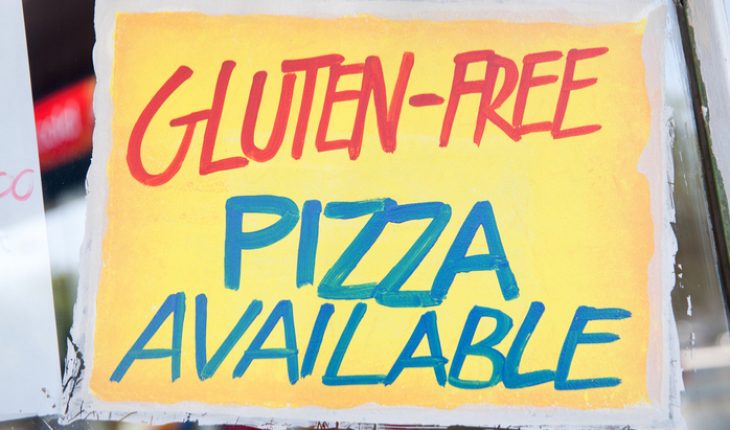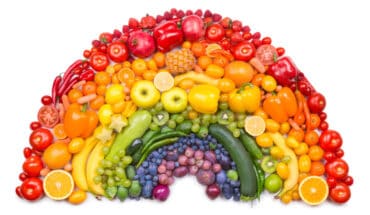More people than ever are buying into the gluten-free trend – not necessarily because they are suffering from coeliac disease, but because it has achieved a bit of a ‘health halo’ status. Just the mention of ‘gluten-free’ on a packet seems to endow some mystical health benefit to it. There has been an explosion in gluten-free products, fuelled in small part by a genuine growth in coeliac disease which has increased fourfold over the past 20 years.
There has been an explosion in gluten-free products, fuelled in small part by a genuine growth in coeliac disease which has increased fourfold over the past 20 years.
However, much of the drive behind the increase is due to many other things – the publicity around a lower carbohydrate diet, celebrity influence and manufacturers’ knowledge that they can charge a premium for gluten-free products (over twice as much in many cases!). In fact, manufacturers are looking forward to the 250 million pound market share that gluten-free products are predicted to attract by late 2017.
Whilst only a small proportion (around 1 in 100) of us actually have coeliac disease, many more are concerned that they have an intolerance to gluten which is a protein found in wheat, barley and rye. These may experience similar symptoms to coeliac disease (such as bloating, wind and diarrhoea) without actually having the intestinal damage found in coeliac disease. Non-coeliac gluten intolerance is really a type of irritable bowel syndrome that seems to improve if gluten-containing products are avoided. It is unclear why this should be, and even whether it is the gluten itself that causes these symptoms. One possible scenario is that people avoiding gluten tend to reduce a lot of heavily processed foods and eat a more healthy and varied diet, which reduces many symptoms in itself.
Gluten-free products have been created as a replacement for foods that typically contain gluten which can hide in all sorts of food as well as bread – such as pasta, cereal, processed foods, sauces, cakes, sausages and even drinks. Eating gluten-free used to be limiting – now supermarkets and health food shops are stocking a wider range of gluten-free foods making it easy for people who want to avoid gluten.
For those with coeliac disease, these products are indeed healthier, as they don’t cause the same damaging effects that ingesting gluten does. However, many pre-packaged gluten-free products make up for their lack of gluten by including more sugar or fat to make the product more appetising, but may actually make the gluten-free products less healthy than the standard versions. They may also contain a much lower level of fibre and minerals, which can be stripped during the production process. The health-halo effect also means that when we think we are eating something healthy (even if it isn’t) we tend to eat more of it – which may not help our waistline.
The health-halo effect also means that when we think we are eating something healthy (even if it isn’t) we tend to eat more of it – which may not help our waistline.
Is gluten-free’ better for me?
1. If you have a diagnosis of coeliac disease then ‘gluten-free’ is more than better for you; it is essential for your health. Using specific gluten-free products in this situation may provide you with a greater range of options in your diet – just make sure you choose good-quality products as you would with other foods.
2. If you think you have gluten-intolerance don’t just exclude gluten from your diet. Get a proper test for coeliac disease first as it can’t be diagnosed properly if you have already cut out gluten. Once coeliac disease has been properly excluded then having gluten will do you no harm but you may prefer to avoid or reduce gluten if it genuinely causes symptoms. The best way to do this is simply to reduce the processed bread, cakes and biscuits that add little, if anything, to a nutritious diet anyway. Paying over the odds for gluten-free products is your choice – but if they help, then they will do you no harm as long as they are otherwise good products and not full of processed fats, sugar or other nasties!
3. If gluten causes you no symptoms then you can eat what you like (within reason!) and going gluten-free is of no proven benefit. However, by reducing gluten-containing products, you will help yourself reduce many of the processed carbohydrates that we eat in excess and may well be contributing to our obesity epidemic. Don’t just replace them with a less healthy, gluten-free version though – eating a meal that is free of gluten, but full of tasty, hearty vegetables and proteins instead is certainly going to be much healthier for us.
- Why do diets fail? - 24th January 2018
- Leftovers can be good for you - 26th December 2017
- Five reasons to quit caffeine..and five reasons not to! - 12th July 2017






